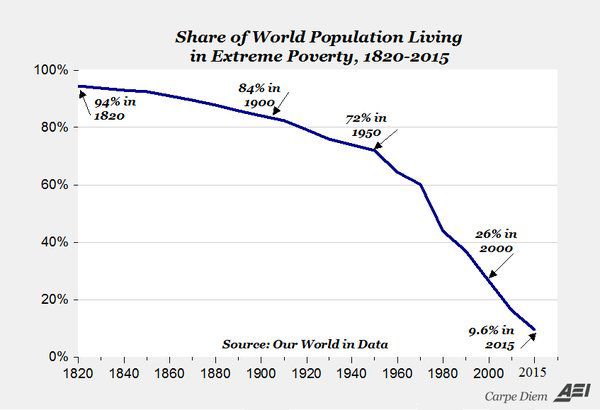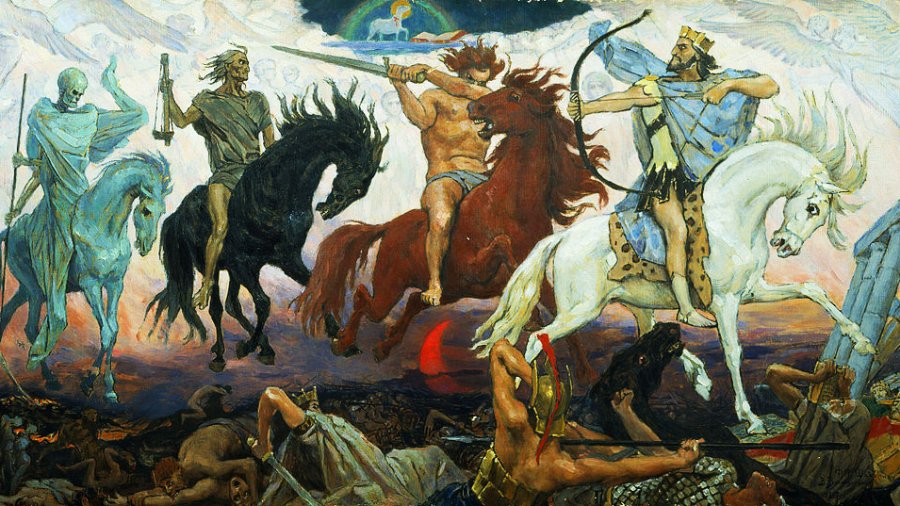1/ Envision, if you will, the most hauntingly fucked up scenario I can imagine:
In the future, humanity creates either a superintelligent AI or is visited by superintelligent extraterrestrials—either scenario is plausible. Let’s take extraterrestrials in this example. Humanity is visited by superintelligent extraterrestrials, and these extraterrestrials happen to have immortality technology. And they happen to be really fucking sadistic.
They proceed to make all sentient earthly beings immortal, just so that they can torture us in the worst way possible for eternity. I don’t know what the worst form of torture would be, but let’s say, for instance, that they force all humans to live for eternity in a simulation in which we repeatedly watch our loved ones die in horrendous ways while we ourselves are electrocuted or otherwise physically tortured in an unprecedentedly painful way. Their reasons for doing this are not entirely clear to us. It is postulated that they either derive twisted pleasure and entertainment from this state of affairs, or that they somehow transmute our collective fear and pain into some kind of useful substance/energy, or both.
2/ This scenario would, for all intents and purposes, convert this universe into a Literal Hell: an eternity of maximum torture and suffering.
3/ Upon first consideration, it’s easy to assume that the extinction of all life on Earth is the worst-case scenario for our planet and for humanity. Unfortunately, it’s not even close.
4/ While total extinction would be unspeakably tragic, spending billions upon billions upon endless billions of years living in an eternal, simulated concentration camp strikes me as infinitely worse than death. And, unsettlingly, my Literal Hell scenario seems potentially plausible. If the many-worlds interpretation of quantum mechanics is correct—if there are indeed infinite universes in which all possible pasts and futures are played out—and if it’s possible to create technology that makes humans and other earthly species immortal, this scenario (or something similar) probably exists somewhere in the multiverse.
5/ It disturbs me that we likely live in a uni-/multiverse in which this possibility exists, or at the very least in which many other quasi-Literal Hell scenarios can occur. Some part of me will probably always reject and abhor this reality on those grounds.
6/ Someone once asked me why I’m so Panglossian—so extraordinarily optimistic about the world in which we find ourselves. Perhaps the best answer I can give to such a question is to point to the fact that we are fucking lightyears away from Literal Hell, from the worst-case scenarios imaginable.
7/ Reality could be infinitely worse: devoid of joy, hope, and the possibility of existence-affirmation. Remember that. And realize most of us on Earth live almost the precise opposite: lives containing substantial joy, hope, and possibility of existence-affirmation.
8/ The Stoics had a counterintuitive strategy for accepting reality and cultivating gratitude: negative visualization. They meditated on worst-case scenarios in order to build resilience and to see the present more clearly—to accept and appreciate it. I believe I’ve unintentionally taken this tactic to the extreme, and in doing so, realized just how good we have it.
9/ Humans tend to have a negativity bias—i.e. negative events and our subsequent negative emotions impact us more and are easier to dwell on than positive happenings. Stoic negative visualization can be seen as a kind of antidote to this bias, allowing us to realize that things are not nearly as bad as they seem, and in fact, may actually be pretty utopian compared to worst-case scenarios.
10/ Now, it is certainly vital to remember that many people and animals are currently experiencing Earth as something akin to a hellscape. Poverty, torture, war, starvation, and other brutal realities are currently causing millions of beings to live in a state of agony.
11/ Friedrich Nietzsche was right that some amount of suffering and hardship can be valuable and productive, but it’s the height of hubris to think that of torture, war, starvation, or crippling disease. After a certain point, suffering becomes meaningless, purposeless agony. And millions of beings on our planet experience this agony daily. This underscores the necessity of using effective altruism and other means to raise the global minimum standard of living to an acceptable level, and minimize meaningless agony for humans and non-humans as much as possible.
12/ It’s also vital, however, to recognize that the overwhelming majority of human beings alive today are not living in agony. In fact, by many metrics, we are living in the most peaceful and prosperous period of human history. In 1820, 94% of the people on Earth were living in extreme poverty. In 2015, that figure had dropped to 9.6%:

13/ Tragically, ~20,000,000 humans per year are still dying from extreme poverty, which is unconscionably horrendous, but that also means 7,480,000,000 of us (99.73%) are not dying from poverty each year and possess at least enough to survive. Consider for a moment what a miracle that is—that our global infrastructure is managing to support that many people.
14/ We should not underestimate this colossal blessing. As far as we know, we may well be living in the most utopian civilization the universe has yet managed to produce. Opportunities and wonders abound, and as long as we don’t destroy ourselves or severely curtail our potential, there’s a strong chance things are going to get a lot better.
15/ Let’s keep working to end meaningless agony and make this planet as utopian as possible. But let’s also never forget that things could be unfathomably worse than they are right now, and that in fact we are likely living in a Golden Age of human history—in what is potentially one of the most startlingly magical civilizations yet to exist in this universe.
===
Featured image art: Four Horsemen of Apocalypse, by Viktor Vasnetsov, 1887
About Jordan Bates
Jordan Bates is a Lover of God, healer, mentor of leaders, writer, and music maker. The best way to keep up with his work is to join nearly 7,000 people who read his Substack newsletter.





Great read!
thanks Chris : ]